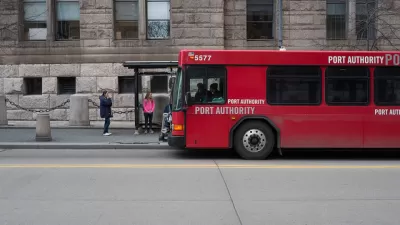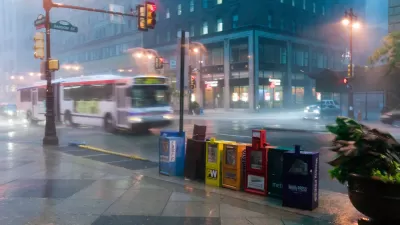King County Metro operates one of the nation’s busiest transit systems—without running any trains. The agency recently released a playbook as a guide to transit service.

In an article published by Transportation for America, Jackson Pierce shares news and details on the “Transit Speed & Reliability Guidelines and Strategies” published by Washington State’s King County Metro in late 2021.
According to Pierce, the guide presents a “playbook” for operational tools and capital projects that can be copied by other transit agencies to save riders time and money. “At a time when building public trust in transit is essential, it’s an excellent guide to the infrastructure and services that make transit trustworthy,” write Pierce.
Kings County Metro is one of the nation’s highest performing transit agencies—"one of America’s ten most-ridden transit agencies in 2019, and the busiest not to operate any rail services,” as noted by Pierce. “They achieved this high ridership through smart comprehensive planning (and funding!) for services that run to the places where people actually go.”
As for the specific investments and strategies recommended in the guide, Pierce highlights several (with more detail to be found in the source article below), including changes to street and intersection design and bus stop planning considerations like stop consolidation and bulbouts.
An article by Jeff Switzer for King County Metro at the time of the guide’s release in November 2021 offers additional insight into the document and its recommendations.
FULL STORY: King County’s blueprint for better bus speed and reliability

Alabama: Trump Terminates Settlements for Black Communities Harmed By Raw Sewage
Trump deemed the landmark civil rights agreement “illegal DEI and environmental justice policy.”

Study: Maui’s Plan to Convert Vacation Rentals to Long-Term Housing Could Cause Nearly $1 Billion Economic Loss
The plan would reduce visitor accommodation by 25% resulting in 1,900 jobs lost.

Planetizen Federal Action Tracker
A weekly monitor of how Trump’s orders and actions are impacting planners and planning in America.

Wind Energy on the Rise Despite Federal Policy Reversal
The Trump administration is revoking federal support for renewable energy, but demand for new projects continues unabated.

Passengers Flock to Caltrain After Electrification
The new electric trains are running faster and more reliably, leading to strong ridership growth on the Bay Area rail system.

Texas Churches Rally Behind ‘Yes in God’s Back Yard’ Legislation
Religious leaders want the state to reduce zoning regulations to streamline leasing church-owned land to housing developers.
Urban Design for Planners 1: Software Tools
This six-course series explores essential urban design concepts using open source software and equips planners with the tools they need to participate fully in the urban design process.
Planning for Universal Design
Learn the tools for implementing Universal Design in planning regulations.
Caltrans
Smith Gee Studio
Institute for Housing and Urban Development Studies (IHS)
City of Grandview
Harvard GSD Executive Education
Toledo-Lucas County Plan Commissions
Salt Lake City
NYU Wagner Graduate School of Public Service





























